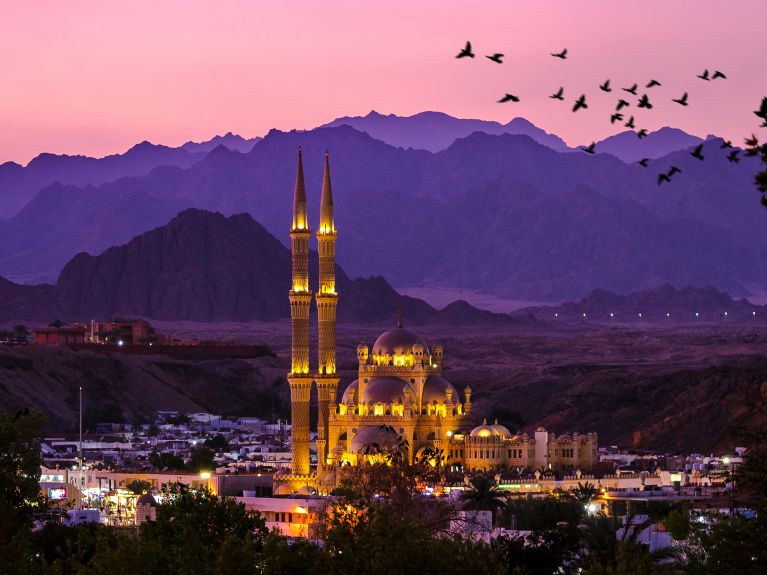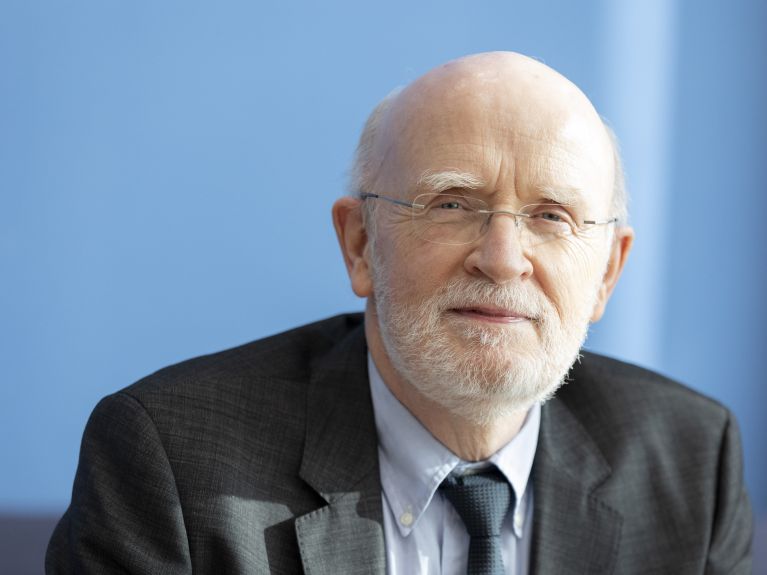“We just have to want to”
COP27 – how we should tackle climate change: the IPCC Assessment Report outlines the options for humankind.

Climate change is in full swing – and we must adapt. The process cannot be halted, only slowed at best. Warming of 1.5 degrees Celsius – the ideal target laid down in the Paris Agreement – will result in drastic changes to our living conditions. Even at the 1.2 degrees above pre-industrial levels that we are currently registering, devastating effects on large parts of the Earth can be observed. “As many as 3.6 billion people already live in regions that are suffering severely from climate change impact,” says Professor Hans-Otto Pörtner. “This can take the form of storms, flooding or droughts, as we are currently experiencing in various countries in parallel.” Yet still far too little thought is being given to how to prepare for such risks, he adds.

Pörtner co-chairs Working Group II of the Intergovernmental Panel on Climate Change (IPCC). Its contribution to the report, which was published in February 2022 and is entitled “Climate Change Impacts, Adaptation, and Vulnerability”, shows not only how climate change is affecting the Earth and which ecosystems are particularly impacted, but also what humans need to do to prevent as much damage as possible. This is the second part of the Sixth Assessment Report of the IPCC. Part one looks at the science behind climate change, part three focuses on the scope for limiting emissions. “In our report we wanted above all to highlight the options we have for initiating climate-resilient developments.”
The vulnerability of humankind to climate change
After all, humankind is vulnerable. Even today there are regions on Earth where humans find it hard to survive on hot summer days. A combination of high temperatures and high humidity makes it dangerous to spend any significant time outside. “And this is a trend that will only worsen,” warns Pörtner. “We are in the process of destroying large parts of an environment we depend on for our lives and which was created 11,000 years ago.” He explains that it is not only a question of life-threatening temperatures, but also of the collapse of entire ecosystems that supply us for example with drinking water and food.
We can do this, we just have to want to.
What the report also shows is that our scope for action is reduced with every tenth of a degree of global warming. According to current modelling, it is precisely the 1.5 degree limit at which the risks for humankind switch from medium to high. The course we are currently on, which would see the Earth warm up by around 2.7 degrees, therefore entails a massive increase in the potential danger and highlights how urgently Western industrialised countries must adapt their lifestyles to the new conditions. One of the most important measures is to protect natural environments. 30 to 50 per cent need to be preserved for us to remain capable of action. “We can do this, however, we just have to want to,” believes Pörtner. “We do have positive courses of action open to us, though often these are to be found at the local level and among indigenous communities. We should learn from them.“
Lifestyles in industrialised countries must change
For Western industrialised countries this means abandoning our previous, wasteful lifestyles. There is no danger of the kind of massive loss in prosperity that sceptics talk about. This is also pointed out for example by the financial expert Silvie Kreibiehl, coordinating lead author of the third part of the IPCC report on mitigation of climate change. 40 to 70 per cent of emissions could be reduced, explains Kreibiehl, without risking any widespread loss of prosperity among the population of countries such as Germany. She is also optimistic about how to finance the climate transition, saying that all that needs to be done is to trigger private flows of capital in those places where they are most urgently needed – in emerging and developing economies. She and her team have calculated the amount by which the funding of a green transition would need to increase in order to achieve the Paris climate targets. “It would have to grow by a factor of three to six. That is not a lot for the capital market.“ She concludes that although the pressure to act is becoming greater all the time, it has at the same time never been clearer which concrete steps have to be taken.
The most important information about COP27 can be found here.


